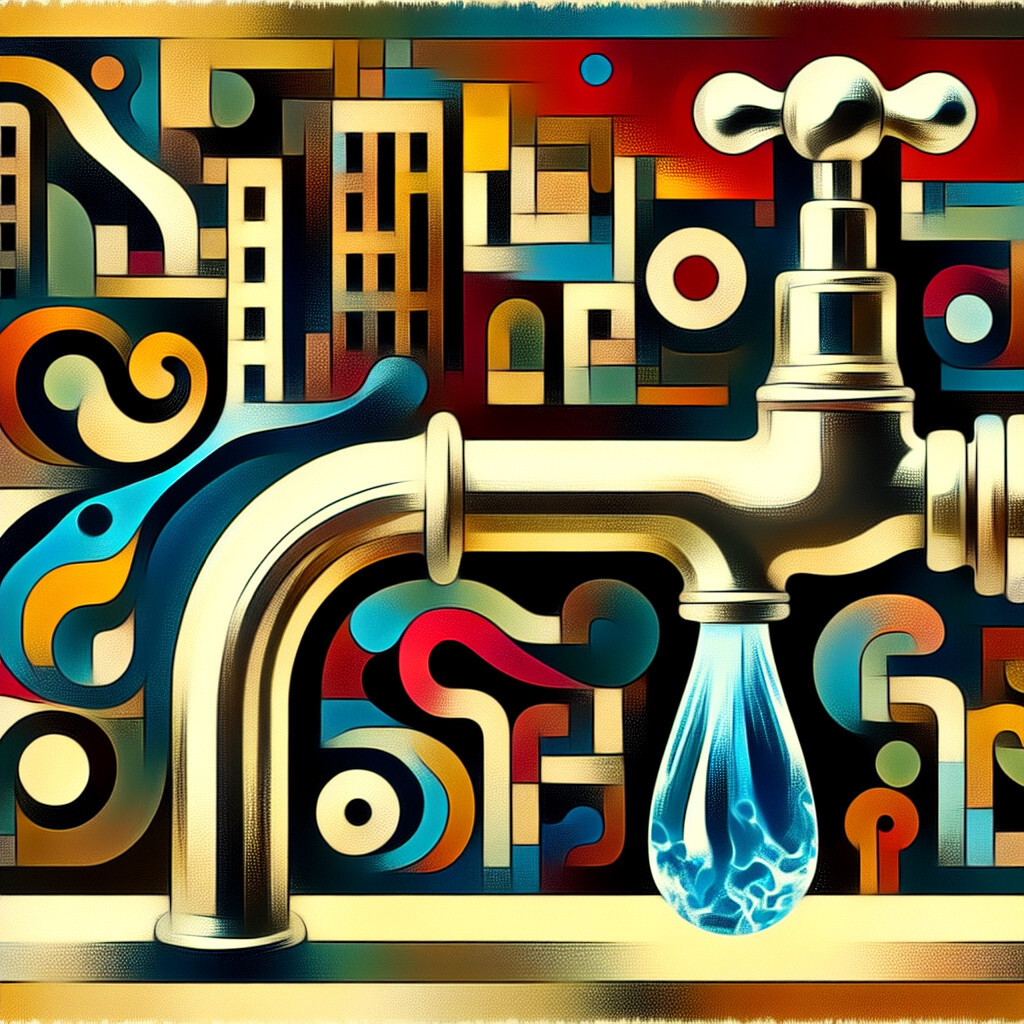-
Table of Contents
“Zanzibar’s Tap Water: Purity in Every Drop!”
Introduction

Tap water in Zanzibar, an island off the coast of Tanzania, is a critical issue due to its limited availability and questionable quality. The island’s water supply is primarily sourced from shallow wells, rainwater harvesting, and desalinated seawater. However, the water is often contaminated with bacteria and other pollutants, making it unsafe for direct consumption. The lack of clean, safe drinking water has significant health and socio-economic implications for the local population. Efforts are ongoing to improve water sanitation and accessibility in Zanzibar.
Understanding the Tap Water Crisis in Zanzibar
Zanzibar, an archipelago off the coast of Tanzania, is renowned for its stunning beaches, rich history, and vibrant culture. However, beneath this idyllic facade lies a pressing issue that has been plaguing the island for years – the tap water crisis. Despite being surrounded by the Indian Ocean, the residents of Zanzibar grapple with a severe shortage of clean, safe drinking water. This crisis is not only a matter of inconvenience but also a significant health risk, as contaminated water is a leading cause of diseases such as cholera and typhoid.
The tap water crisis in Zanzibar is primarily attributed to the island’s rapid population growth and urbanization. The existing water infrastructure, which was designed to cater to a much smaller population, is now stretched beyond its capacity. Consequently, the demand for water far outstrips the supply, leading to frequent water shortages. Moreover, the water that does reach the taps is often contaminated due to inadequate treatment and the use of outdated, deteriorating pipes.
In addition to these infrastructural challenges, Zanzibar’s water crisis is exacerbated by the effects of climate change. The island’s freshwater sources, such as wells and springs, are increasingly under threat from rising sea levels and saltwater intrusion. This not only reduces the availability of freshwater but also further compromises its quality. Furthermore, erratic rainfall patterns, another consequence of climate change, disrupt the replenishment of these sources and make water availability even more unpredictable.
The government of Zanzibar has been making concerted efforts to address this crisis. Several projects have been initiated to improve the water infrastructure, including the construction of new water treatment plants and the replacement of old pipes. The government is also exploring alternative water sources, such as rainwater harvesting and desalination, to supplement the existing supply. However, these initiatives are often hampered by a lack of funding and technical expertise.
International aid agencies and non-governmental organizations have also stepped in to help. They provide financial and technical assistance for water projects, conduct awareness campaigns about water conservation, and distribute water purification devices to households. These efforts have made a significant difference, but much more needs to be done to ensure that every resident of Zanzibar has access to clean, safe tap water.
The tap water crisis in Zanzibar is a stark reminder of the global water crisis. According to the World Health Organization, nearly 2 billion people worldwide lack access to safely managed drinking water. This crisis is not just about water scarcity, but also about water quality, infrastructure, and governance. It underscores the need for comprehensive, sustainable solutions that address all these aspects.
In conclusion, the tap water crisis in Zanzibar is a complex issue that requires a multi-faceted approach. It calls for significant investment in water infrastructure, innovative strategies to augment water supply, and effective policies to manage water resources sustainably. It also highlights the importance of international cooperation and local community involvement in tackling this crisis. As the world grapples with the broader challenges of water security and climate change, the experience of Zanzibar offers valuable lessons and insights.
The Impact of Contaminated Tap Water on Zanzibar’s Health
Zanzibar, an archipelago off the coast of Tanzania, is renowned for its stunning beaches, rich history, and vibrant culture. However, beneath this idyllic facade lies a pressing issue that has been plaguing the island for years – the contamination of tap water. This problem has far-reaching implications, particularly on the health of the local population, and it is a matter that demands immediate attention and action.
The primary source of tap water in Zanzibar is groundwater, which is often contaminated with harmful bacteria and other pollutants due to inadequate sanitation facilities and poor waste management practices. This contaminated water, when consumed, can lead to a host of health problems. The most common of these are waterborne diseases, such as cholera, typhoid, and dysentery, which can be fatal if not treated promptly and properly.
The impact of these diseases on the health of Zanzibar’s population is significant. According to the World Health Organization, diarrheal diseases alone, primarily caused by contaminated water and poor sanitation, account for approximately 7.6% of all deaths in Tanzania. This figure is alarmingly high, especially considering that these diseases are largely preventable.
Children are particularly vulnerable to the effects of contaminated tap water. Their immune systems are not fully developed, making them more susceptible to waterborne diseases. Moreover, repeated bouts of these illnesses can lead to malnutrition, stunted growth, and cognitive impairment, further compromising their health and development.
The contamination of tap water also has indirect effects on the health of Zanzibar’s population. For instance, it contributes to the spread of vector-borne diseases such as malaria. Mosquitoes, the primary vectors of malaria, breed in stagnant water, which is often a byproduct of poor sanitation and waste management. Furthermore, the time and effort spent on fetching clean water from distant sources can lead to physical exhaustion and stress, particularly among women and children who are typically tasked with this chore.
Addressing the issue of contaminated tap water in Zanzibar is a complex task that requires a multifaceted approach. It involves improving sanitation facilities, promoting proper waste management practices, and ensuring the availability of clean, safe drinking water. This can be achieved through the implementation of effective policies, the provision of adequate resources, and the active participation of the local community.
Efforts are already underway to tackle this issue. For instance, the Zanzibar Water Authority, with support from international organizations, has been working to improve the island’s water supply system. However, much more needs to be done to ensure that every resident of Zanzibar has access to clean, safe tap water.
In conclusion, the contamination of tap water in Zanzibar is a serious issue that has a profound impact on the health of the local population. It is a problem that requires urgent attention and concerted efforts from all stakeholders. By addressing this issue, we can not only improve the health and well-being of Zanzibar’s residents but also contribute to the island’s overall development and prosperity.
Solutions for Improving Tap Water Quality in Zanzibar
Zanzibar, an archipelago off the coast of Tanzania, is renowned for its stunning beaches, rich history, and vibrant culture. However, beneath this idyllic facade lies a pressing issue that affects the health and well-being of its residents: the quality of tap water. The tap water in Zanzibar is often contaminated with harmful bacteria and pollutants, posing a significant health risk to the local population. This article will explore potential solutions for improving the quality of tap water in Zanzibar.
Firstly, the implementation of advanced water treatment technologies is crucial. Currently, the water treatment facilities in Zanzibar are outdated and lack the capacity to effectively remove all contaminants from the water. By investing in modern water treatment technologies, such as reverse osmosis and ultraviolet disinfection, the government can ensure that the tap water is free from harmful bacteria and pollutants. These technologies work by forcing water through a semi-permeable membrane or exposing it to UV light, respectively, both of which are effective at eliminating contaminants.
Secondly, the government should consider implementing a comprehensive water testing and monitoring program. Regular testing of the tap water can help identify any potential contaminants and ensure that the water treatment facilities are functioning properly. This would involve collecting water samples from various locations across the island and testing them for a range of contaminants. The results of these tests would then be used to inform decisions about necessary improvements to the water treatment process.
In addition to these measures, public education campaigns can play a vital role in improving tap water quality. Many residents of Zanzibar are unaware of the risks associated with consuming contaminated tap water and do not take necessary precautions to protect themselves. By educating the public about the importance of safe drinking water and providing them with information on how to properly treat and store water at home, the government can help reduce the incidence of waterborne diseases.
Furthermore, the government should also consider partnering with international organizations and non-governmental organizations that specialize in water and sanitation projects. These organizations can provide technical expertise, financial resources, and logistical support to help improve the quality of tap water in Zanzibar. They can also assist in training local staff and building capacity within the government to manage and maintain the water treatment facilities.
Lastly, the government should prioritize the maintenance and repair of the existing water infrastructure. Many of the pipes and pumps that deliver water to homes and businesses in Zanzibar are old and in poor condition, leading to leaks and contamination. By regularly inspecting and repairing this infrastructure, the government can prevent contamination and ensure that clean, safe water is delivered to all residents.
In conclusion, improving the quality of tap water in Zanzibar is a complex task that requires a multifaceted approach. By investing in modern water treatment technologies, implementing a comprehensive water testing and monitoring program, educating the public, partnering with international organizations, and maintaining the existing water infrastructure, the government can make significant strides towards ensuring that all residents have access to safe, clean drinking water. This, in turn, will contribute to the overall health and well-being of the population, and support the sustainable development of this beautiful island.
The Role of Government in Addressing Zanzibar’s Tap Water Issues
Zanzibar, an archipelago off the coast of Tanzania, is renowned for its stunning beaches, rich history, and vibrant culture. However, beneath this idyllic facade lies a pressing issue that has been plaguing the island for years – the problem of tap water. The quality and availability of tap water in Zanzibar have been a longstanding concern, with many households lacking access to clean and safe drinking water. This issue is not only a matter of convenience but also a critical public health concern. The role of the government in addressing Zanzibar’s tap water issues is therefore of paramount importance.
The government of Zanzibar has been making concerted efforts to tackle this issue. Recognizing the gravity of the situation, it has embarked on several initiatives aimed at improving the quality and accessibility of tap water. These initiatives are part of a broader strategy to enhance the overall quality of life for the island’s residents and to safeguard their health and well-being.
One of the key measures undertaken by the government is the implementation of water treatment facilities. These facilities are designed to purify the water, removing harmful contaminants and ensuring that it is safe for consumption. The government has also been investing in infrastructure development, including the construction of new water pipelines to expand the reach of the water supply network. This is particularly crucial in rural areas of Zanzibar, where access to clean tap water is often limited.
In addition to these physical interventions, the government has also been focusing on policy and regulatory measures. It has enacted stringent water quality standards and regulations to ensure that the water supplied to households meets the necessary safety criteria. Regular monitoring and enforcement of these standards are carried out to maintain the quality of the water supply.
Furthermore, the government has been actively promoting water conservation practices. This is crucial in Zanzibar, where water resources are limited and the demand for water is high. Public awareness campaigns are regularly conducted to educate the population about the importance of water conservation and to encourage responsible water usage.
However, despite these efforts, challenges remain. The government’s initiatives are often hampered by financial constraints, technical difficulties, and logistical issues. Moreover, the rapid population growth and urbanization in Zanzibar are putting additional pressure on the already strained water supply system.
To overcome these challenges, the government is seeking partnerships with international organizations and donors. These partnerships are aimed at securing the necessary funding and technical expertise to enhance the water supply system. The government is also exploring innovative solutions, such as rainwater harvesting and desalination, to augment the water supply.
In conclusion, the government of Zanzibar plays a pivotal role in addressing the island’s tap water issues. Through a combination of infrastructure development, policy measures, and public awareness campaigns, it is striving to ensure that every resident has access to clean and safe drinking water. While challenges persist, the government’s commitment to resolving this issue is unwavering. With continued efforts and international support, the dream of clean tap water for all in Zanzibar can become a reality.
Q&A
1. Question: Is tap water safe to drink in Zanzibar?
Answer: No, tap water in Zanzibar is generally not considered safe to drink. It’s recommended to drink bottled water.
2. Question: What are the common issues with tap water in Zanzibar?
Answer: The common issues with tap water in Zanzibar include contamination with bacteria, viruses, and parasites due to inadequate sanitation facilities and infrastructure.
3. Question: Are there any efforts to improve the tap water quality in Zanzibar?
Answer: Yes, there are efforts by the government and international organizations to improve water infrastructure and sanitation facilities in Zanzibar to enhance the quality of tap water.
4. Question: Can tap water in Zanzibar be used for other purposes like bathing and cooking?
Answer: Yes, tap water in Zanzibar can be used for bathing and cooking, but it’s recommended to boil the water before cooking to kill any potential harmful organisms.
Conclusion
In conclusion, tap water in Zanzibar is not considered safe to drink due to potential contamination with harmful bacteria, viruses, or parasites. It is recommended for visitors to drink bottled or treated water to avoid health risks. Despite efforts to improve the water infrastructure, issues such as inadequate sanitation facilities and irregular water supply persist.






